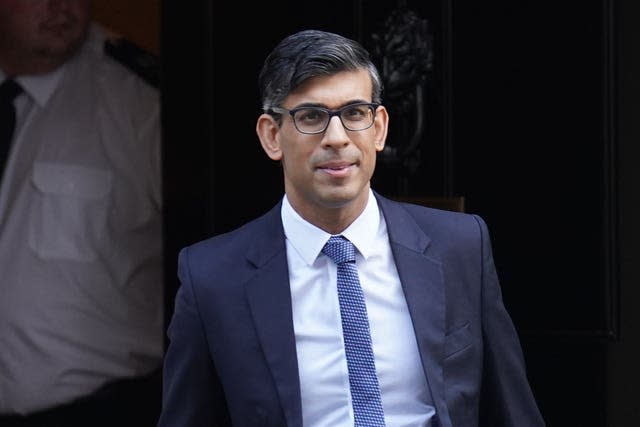UK digital currency ‘likely to be needed’, say Treasury and Bank of England
A state-backed “digital pound” could be launched later this decade as the Bank of England and Treasury set out a road map to potentially introduce a new central bank currency.
The Bank and the Government will formally start a consultation for the digital currency on Tuesday.
The bodies said that a digital pound, which would be issued by the Bank of England, is “likely to be needed in the future” as use of cash and cards continues to change.
Nevertheless, the consultation and research process does not mean the central bank digital currency (CBDC) will definitely be issued, with the decision due to take place at a later stage.
It comes after years of speculation that the currency could be considered amid the rapid growth of new digital financial formats, such as cryptocurrencies and stablecoins.
The Treasury has stressed that the potential currency is not a cryptoasset, which are privately backed investments.
Prime Minister Rishi Sunak asked the Bank of England to look into the case for a Bank-backed currency in 2021 when he was chancellor.
In October, Mr Sunak’s financial service minister Andrew Griffith cautioned that a lengthy delay in issuing a digital pound could create problems for the economy.
Current Chancellor Jeremy Hunt said: “While cash is here to stay, a digital pound issued and backed by the Bank of England could be a new way to pay that’s trusted, accessible and easy to use.

“That’s why we want to investigate what is possible first, whilst always making sure we protect financial stability.”
The Bank of England will undertake further research and development work while the public are being invited to take part in the consultation process.
The Bank and the Treasury said the currency will not dramatically alter how British people use money but that they believe it could help “ensure the public have access to safe money that is convenient to use as our everyday lives become more digital”.
The consultation is due to take around four months. It is understood that the design phase is then likely to continue until at least 2025, from which time a final decision could be made.
If it gets the go-ahead, there would then be significant investment to launch the currency, which could take place during the latter-half of the current decade.
The currency would be issued and held by the Bank of England, but intermediaries, such as consumer banks or other businesses, would be needed for people to spend it.
There are likely to be initial restrictions on how much of the currency any individual or business could hold.
Andrew Bailey, Governor of the Bank of England, said: “As the world around us and the way we pay for things becomes more digitalised, the case for a digital pound in the future continues to grow.
“A digital pound would provide a new way to pay, help businesses, maintain trust in money and better protect financial stability.
“However, there are a number of implications which our technical work will need to carefully consider.
“This consultation and the further work the Bank will now do will be the foundation for what would be a profound decision for the country on the way we use money.”
Countries around the world are also considering similar proposals, such as the US, China and the Eurozone.
Tulip Siddiq, Labour’s shadow city minister, said: “We fully support the Bank of England’s work exploring the potential benefits of a safe and stable CBDC.
“This is a welcome contrast to the Conservative Government’s promotion of the crypto wild west, which has put millions of people’s savings at risk.”

 Yahoo Movies
Yahoo Movies 